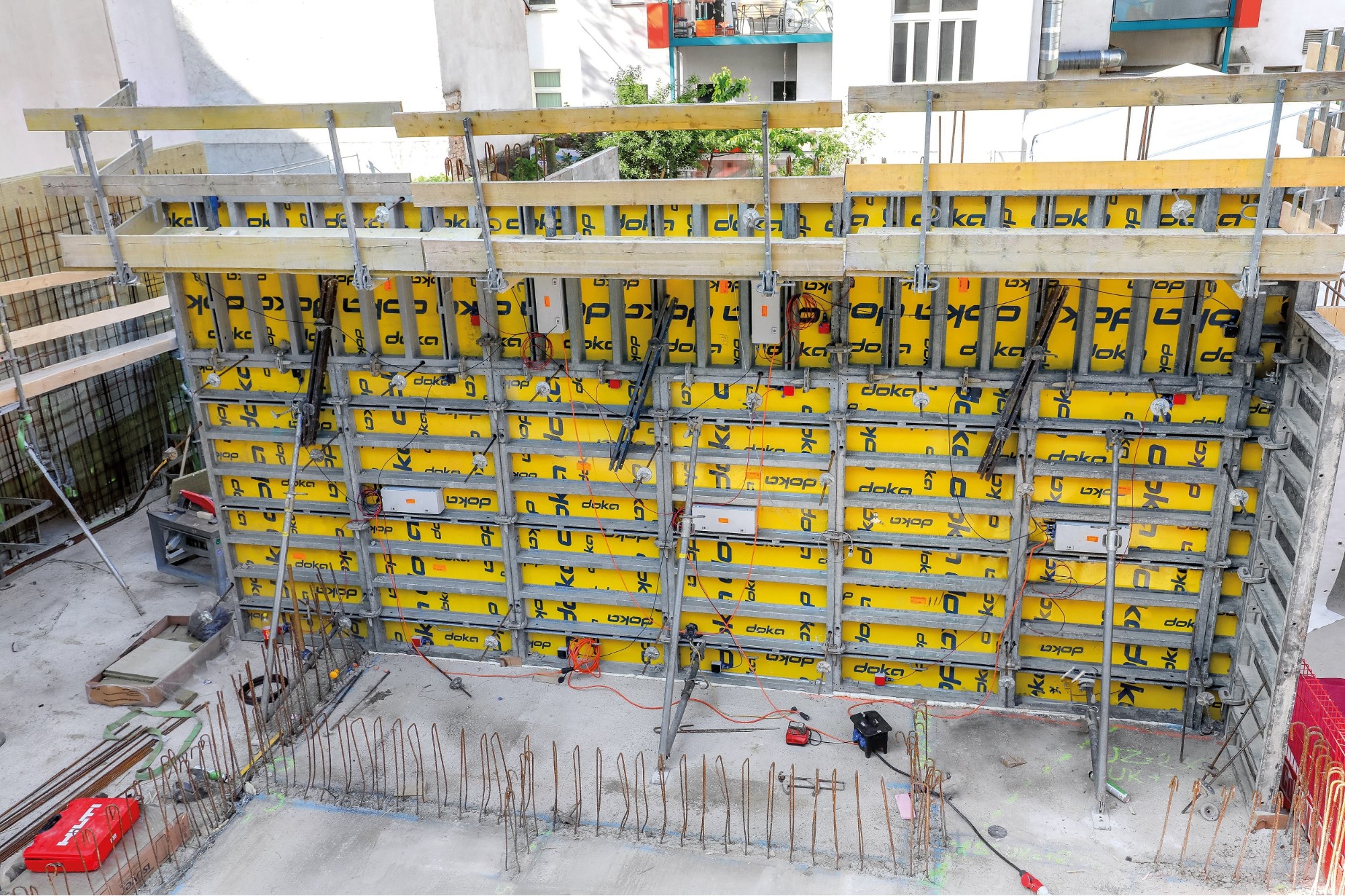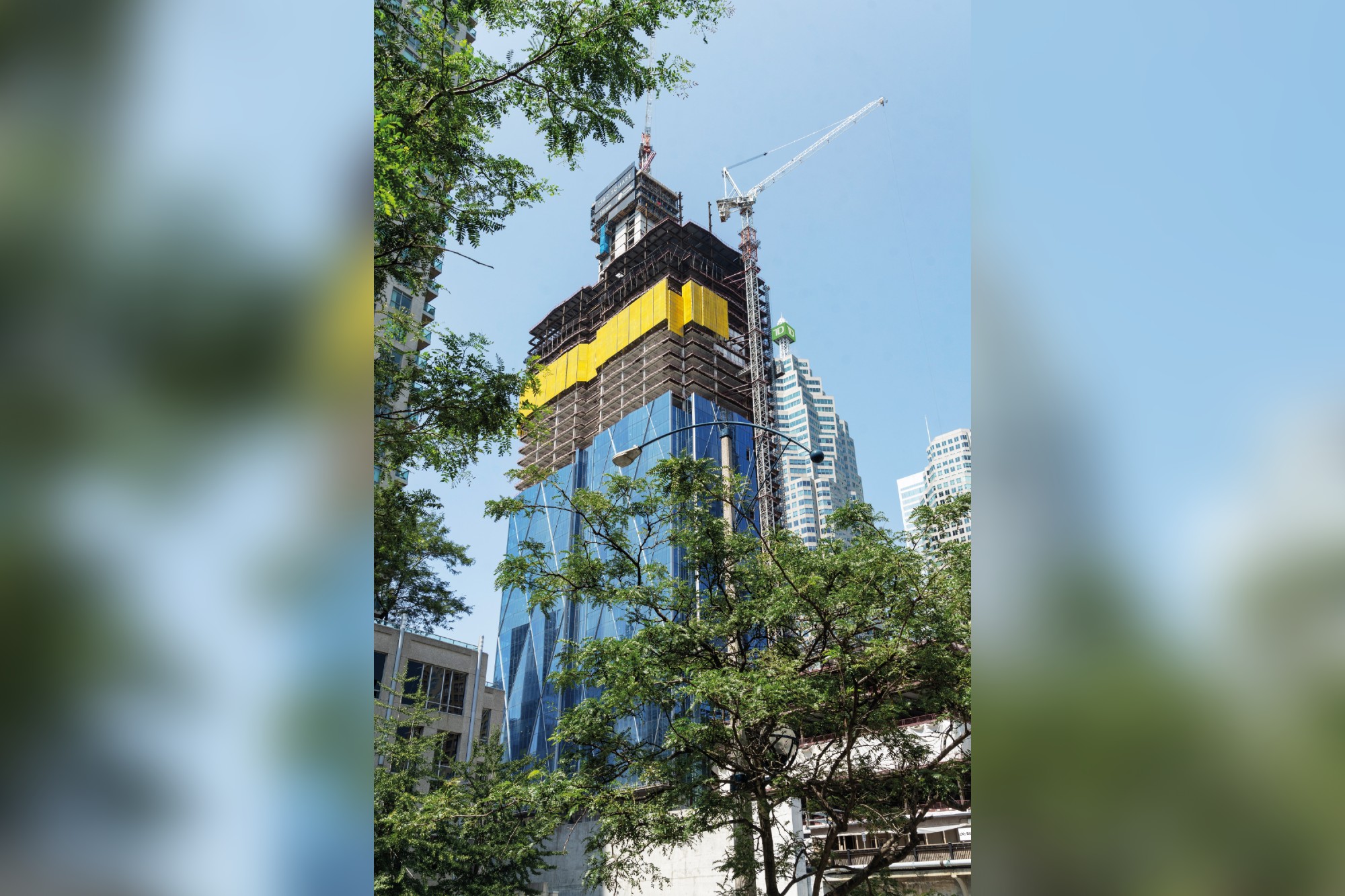Doka pioneers sustainability in construction with SBTi commitment
By Staff Report | December 9, 2024 6:57 pm SHARE

Doka, a global formwork leader, has joined the Science Based Targets program, strengthening its commitment to reducing emissions, reaching Net Zero by 2040, and pushing sustainability in the building industry.
Doka, a global leader in formwork and scaffolding, has become the first company in its industry to join the Science Based Targets initiative (SBTi). This milestone underlines Doka’s commitment to reducing emissions following the most recent scientific guidelines and helping to limit global warming to 1.5°C. By aligning its ambitions with the SBTi, Doka positions itself at the forefront of the global push to decarbonise the construction industry.
The construction sector is under increasing pressure to embrace more sustainable methods, driven by rising regulatory expectations and an urgent need to reduce its significant environmental effect. The industry accounts for over 37 percent of worldwide greenhouse gas emissions, making it an important actor in the fight against climate change. Doka sees this challenge as an environmental obligation and stimulus for developing more resilient and sustainable business models that can generate long-term success in the changing construction industry.
On the way to net zero
The commitment to the SBTi is a key component of Doka’s entire “Net Zero 2040” sustainability policy. “The transition to net zero is a complex challenge that requires both ambition and resilience. By committing to the SBTi, we are demonstrating that sustainability is not just a buzzword for us – it’s serious business,” says Robert Hauser, CEO of Doka. “We believe that sustainable practices and solutions are the key to helping our customers thrive in a futureproof, competitive construction industry.”

Ambitious climate targets as a competitive advantage
Doka has set ambitious targets for decreasing its carbon footprint. The company is committed to decreasing Scope 1, 2, and 3 emissions under the SBTi absolute reduction methodology, ensuring that Doka’s climate ambitions are consistent with the Paris Agreement’s 1.5°C trajectory. By 2030, emissions from Scope 1 and Scope 2 must be reduced by at least 42 percent. Scope 3 emissions, which include all indirect emissions created outside the company’s direct operations, must be reduced by 42 percent. Robert Hauser adds, “We are constantly collaborating with our customers and suppliers to develop safer, more efficient, and climate-friendly solutions. Our commitment to SBTi solidifies our dedication to cutting greenhouse gas emissions, not just within Doka but across our entire supply chain.”
A longstanding commitment to sustainable progress
Doka’s sustainability leadership extends well beyond its current commitment to the SBTi. Doka has already taken considerable steps to cut emissions, such as boosting the usage of renewable energy throughout its global operations. Doka’s Austrian headquarters has switched to 100 percent renewable electricity, aided by the expansion of photovoltaic installations and a green energy switch. These activities are critical to attaining the company’s long-term emission reduction targets, which are presently being validated by the SBTi, but they are only the beginning.

Furthermore, Doka’s rental model contributes significantly to the circular economy, which, like decarbonisation, is a crucial component of the company’s sustainability strategy. Doka reduces material and resource consumption by repairing its formwork after each use at dedicated service centers, allowing items to remain in circulation for longer. The company is also looking at the use of recycled, low-carbon materials in its formwork systems to reduce the environmental impact of construction projects. Doka, with a strong focus on innovation and collaboration, is constantly collaborating with top industry experts and organisations to promote sustainable practices, such as the use of intelligent heated formwork on building sites, which allows for the use of CO2-reduced concrete.
Doka has built on these efforts by pioneering the computation of the Product Carbon Footprint (PCF) for their portfolio of over 7,000 items. The company was essential in starting and co-developing the first industry-wide guidelines for determining the PCF of formwork and scaffolding, which enables evidence-based purchase decisions. These initiatives assist both the environment and Doka’s clients worldwide.
For more information, visit: https://www.doka.com/in/index
Cookie Consent
We use cookies to personalize your experience. By continuing to visit this website you agree to our Terms & Conditions, Privacy Policy and Cookie Policy.




































-20240213125207.png)

























